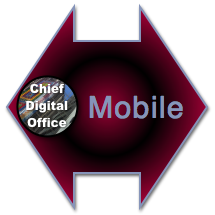 CSRA milestones reflects on my first ten years of experiential social media, seen through the eyes of clients I’ve served. I’ll share what I learned about what outcomes we got in each engagement as well as how it happened that I developed and pioneered experiential, which if a repeatable process for developing trust and profit at scale. CSRA milestones reflects on my first ten years of experiential social media, seen through the eyes of clients I’ve served. I’ll share what I learned about what outcomes we got in each engagement as well as how it happened that I developed and pioneered experiential, which if a repeatable process for developing trust and profit at scale.
If you’d like to watch this post instead, just click the thumbnail button.
[…]
 11 Celebration summarizes my reflections on CSRA’s first decade in business, and my vision for our next decade. We’ve been pioneering in experiential social media and social business transformation since I founded the firm in February 2006. 11 Celebration summarizes my reflections on CSRA’s first decade in business, and my vision for our next decade. We’ve been pioneering in experiential social media and social business transformation since I founded the firm in February 2006.
It’s difficult to encapsulate ten years of learnings, but that hasn’t stopped me from trying! This page will reprise some of my favorite posts, and it will feature a series of videos I’ve made in which I explain where we’ve been and where we’re going. This post will change frequently, so please consider it a work in progress.
[…]
 Behavioral economics autonomy and ethics is a thought experiment on how to approach “doing good” when applying the emerging practice of behavioral economics. Along with big data analytics and cognitive science, behavioral economics affords businesses, governments and other organizations unprecedented impact on individuals’ behavior, even without their consent or awareness. This arouses serious ethical and social dilemmas. Behavioral economics autonomy and ethics is a thought experiment on how to approach “doing good” when applying the emerging practice of behavioral economics. Along with big data analytics and cognitive science, behavioral economics affords businesses, governments and other organizations unprecedented impact on individuals’ behavior, even without their consent or awareness. This arouses serious ethical and social dilemmas.
Every behavioral economics practitioner I’ve met has emphasized the importance of using its practice “for good” in order to help people. Like all other human endeavors, however, “for good” is open to interpretation, so I’ll apply my experience with ethnographic and behavioral analysis of social media to reflect on what “for good” might mean in light of individual and group autonomy.
I also hope this Noodle will be food for thought for executives who hire behavioral economics firms as well as all of us who are invariably its subject. In a similar vein, most designers I know are committed to using design principles to improve user experience, and there’s considerable overlap between design and behavioral economics.
Behavioral economics is […]
 Autonomy Artificial Intelligence and the Internet of Things reflects on how people’s autonomy will be affected by software-powered devices and systems that are rapidly permeating our individual and social lives. Autonomy Artificial Intelligence and the Internet of Things reflects on how people’s autonomy will be affected by software-powered devices and systems that are rapidly permeating our individual and social lives.
Although this noodle has a strong personal angle for me, I also have the unusual benefit of having regular conversations with people who are leading the redesign of our “environment.” By superimposing digital devices, sensors, and “intelligence” onto the physical world, designers, engineers, policy makers, behavioral economists, neuroscientists, nanoscientists, and investors, just to name a few, are changing how we perceive and interact with our “world,” so I’ll also bring my insights from those conversations to it. Finally, I’ll consider creator and user points of view on autonomy artificial intelligence and the Internet of things.
[…]
 Reflections on Trust: The Power of Trusting People to Be True to Themselves delves into how trust works in personal and business situations Reflections on Trust: The Power of Trusting People to Be True to Themselves delves into how trust works in personal and business situations
Many people are talking about trust in business these days. I am, too, because it’s the core of my business as well as my personal life. It just occurred to me that there are often some accidental gotchas within many trust discussions I read, and I’ll explore them in case that’s useful to you. First, I’ll delve into trust a little before sharing some insights on how you can make it actionable in your personal, career, and business relationships.
[…]
 This winter carries a surprising benefit of extreme weather. It has been a bit colder than usual in much of the U.S.A. due to the “Polar Vortex,” and I have observed that many professional groups in Chicago have canceled or postponed events due to “extreme weather” over the past two months. This has started to become a phenomenon, so I’ve been observing it with interest. This winter carries a surprising benefit of extreme weather. It has been a bit colder than usual in much of the U.S.A. due to the “Polar Vortex,” and I have observed that many professional groups in Chicago have canceled or postponed events due to “extreme weather” over the past two months. This has started to become a phenomenon, so I’ve been observing it with interest.
My social business client work involves analyzing digital social networks, and it constantly reveals how people affect each other’s behavior, often in surprising ways. I hypothesize that reactions to this weather phenomenon are having unintended effects, so, in the spirit of all Noodles, I’ll explore some of these deeper meanings and invite your thoughts.
[…]
 Why Machines Won’t Displace Human Workers in the Knowledge Economy is a short thought experiment, in the spirit of all Noodles, which was in response to a post in Wired. In Here’s How to Keep the Robots From Stealing Our Jobs, John Hagel posited that a major rationale for the Knowledge Economy firm would be its role as a “knowledge platform” that enabled people to accelerate their learning and productivity. I highly recommend the post, which sparked many intelligent comments. Why Machines Won’t Displace Human Workers in the Knowledge Economy is a short thought experiment, in the spirit of all Noodles, which was in response to a post in Wired. In Here’s How to Keep the Robots From Stealing Our Jobs, John Hagel posited that a major rationale for the Knowledge Economy firm would be its role as a “knowledge platform” that enabled people to accelerate their learning and productivity. I highly recommend the post, which sparked many intelligent comments.
It’s obvious that many people are having difficulties imagining the world toward which we are hurtling, a world in which machines are getting “smarter” and able to “compete” for work roles that humans now do. In writing The Social Channel App, I thought long and hard about the Knowledge Economy and people’s roles in it, and its main thesis is that everything, from states and enterprises to people and products, will be differentiated in the Social Channel and that “humanness” will assume a much more visible importance in the economy.
[…]

Ron May, 1956-2013
Ron May Digital Social Pioneer, and the notorious Chicago hightech commentator and analyst, died on 23 June 2013. Since I knew Ron longer and better than many people, I’ll reflect on what I knew of his life and considerable gifts and contributions. Above all, I’ll try to convey what Ron taught me about the digital world, where he was a pioneer among pioneers.
I met Ron in late 1996 in Dick Reck’s office at KPMG, when The May Report was fledging. It was obvious that he was unusually smart and passionate and motivated, and I learned that these traits were the foundation of Ron May the person. Ron May cared, and he had strong opinions. He had a brilliant inquisitive mind and indefatigable energy. I had a few conversations with Ron about his health over the years, and I suspect that it had a large impact on how he felt and interacted in public.
[…]
 How Mobile Transforms Relationships Between Brands and Customers presents underappreciated aspects of mobile user behavior before outlining three approaches for engaging customers and other stakeholders. How Mobile Transforms Relationships Between Brands and Customers presents underappreciated aspects of mobile user behavior before outlining three approaches for engaging customers and other stakeholders.
As outlined in Ubiquitous Computing Primer, “mobile” is much more than a channel or platform internet-connected devices. By any measure, the Internet’s information and utility are growing exponentially, and mobile devices put the Internet in people’s pockets, so they transform human capabilities and experience.
People plus the Internet have expanded abilities to act and perform. For example, having the optimal assortment of travel apps enables people to avoid many problems and capitalize on opportunities; they miss planes less often, pay less for hotels and suffer less crime. The same holds true for most human endeavors, so people without mobile internet are increasingly at disadvantage. [For more context, see: 1) the “Geoweb” and “Web 3.0.”
How Mobile Transforms Relationships Between Brands and Customers is Part2 of The CDO Guide to Mobile for Digital Transformation.
[…]
 Anonymity, Marketing and Predicting the Future shows that, although each culture has its own concepts of “anonymity” and “marketing,” anonymity will prove to have been a temporary phenomenon in most human cultures because communications technologies are counteracting it. Moreover, based on my studies of and experience with sociology, evolutionary psychology and technology, I observe that 20th century marketing is grounded in anonymity, so we can predict the future of marketing by exploring anonymity and its relationship to marketing. Anonymity, Marketing and Predicting the Future shows that, although each culture has its own concepts of “anonymity” and “marketing,” anonymity will prove to have been a temporary phenomenon in most human cultures because communications technologies are counteracting it. Moreover, based on my studies of and experience with sociology, evolutionary psychology and technology, I observe that 20th century marketing is grounded in anonymity, so we can predict the future of marketing by exploring anonymity and its relationship to marketing.
In brief, marketing’s influence is most poignant when anonymity is high and the marketing “target” is ignorant of the product/service and how to use it. In this scenario, the target is most open marketing’s influence. Read on to learn how marketing is related to anonymity, where anonymity is going and how marketing can transform to strengthen its influence.
Marketing organizations that do not transform will be sidelined because anonymity is dissipating fast.
[…]
|
|
 CSRA milestones reflects on my first ten years of experiential social media, seen through the eyes of clients I’ve served. I’ll share what I learned about what outcomes we got in each engagement as well as how it happened that I developed and pioneered experiential, which if a repeatable process for developing trust and profit at scale.
CSRA milestones reflects on my first ten years of experiential social media, seen through the eyes of clients I’ve served. I’ll share what I learned about what outcomes we got in each engagement as well as how it happened that I developed and pioneered experiential, which if a repeatable process for developing trust and profit at scale.
 11 Celebration summarizes my reflections on CSRA’s first decade in business, and my vision for our next decade. We’ve been pioneering in experiential social media and social business transformation since I founded the firm in February 2006.
11 Celebration summarizes my reflections on CSRA’s first decade in business, and my vision for our next decade. We’ve been pioneering in experiential social media and social business transformation since I founded the firm in February 2006. Behavioral economics autonomy and ethics is a thought experiment on how to approach “doing good” when applying the emerging practice of behavioral economics. Along with big data analytics and cognitive science, behavioral economics affords businesses, governments and other organizations unprecedented impact on individuals’ behavior, even without their consent or awareness. This arouses serious ethical and social dilemmas.
Behavioral economics autonomy and ethics is a thought experiment on how to approach “doing good” when applying the emerging practice of behavioral economics. Along with big data analytics and cognitive science, behavioral economics affords businesses, governments and other organizations unprecedented impact on individuals’ behavior, even without their consent or awareness. This arouses serious ethical and social dilemmas.
 How Mobile Transforms Relationships Between Brands and Customers presents underappreciated aspects of mobile user behavior before outlining three approaches for engaging customers and other stakeholders.
How Mobile Transforms Relationships Between Brands and Customers presents underappreciated aspects of mobile user behavior before outlining three approaches for engaging customers and other stakeholders.